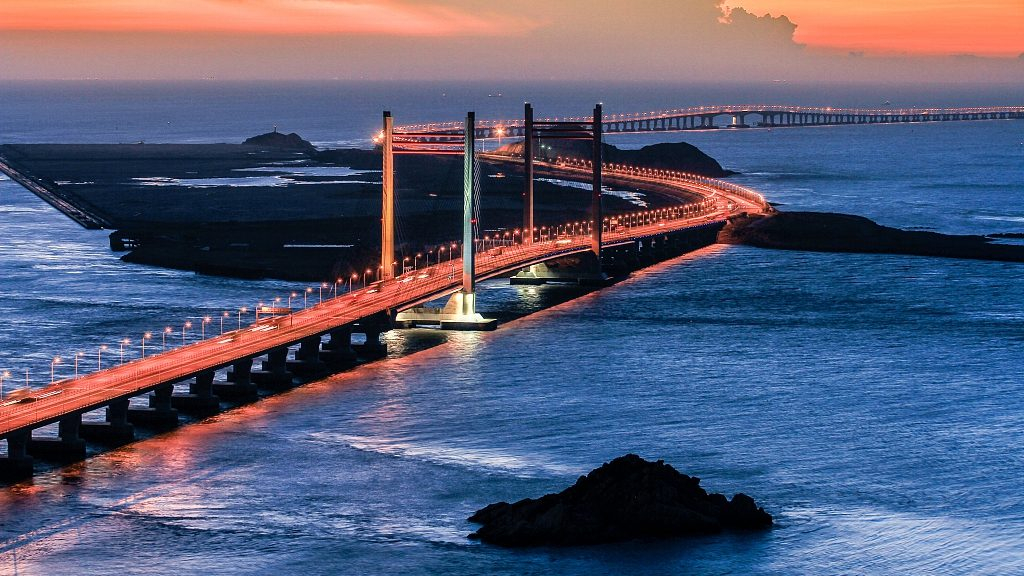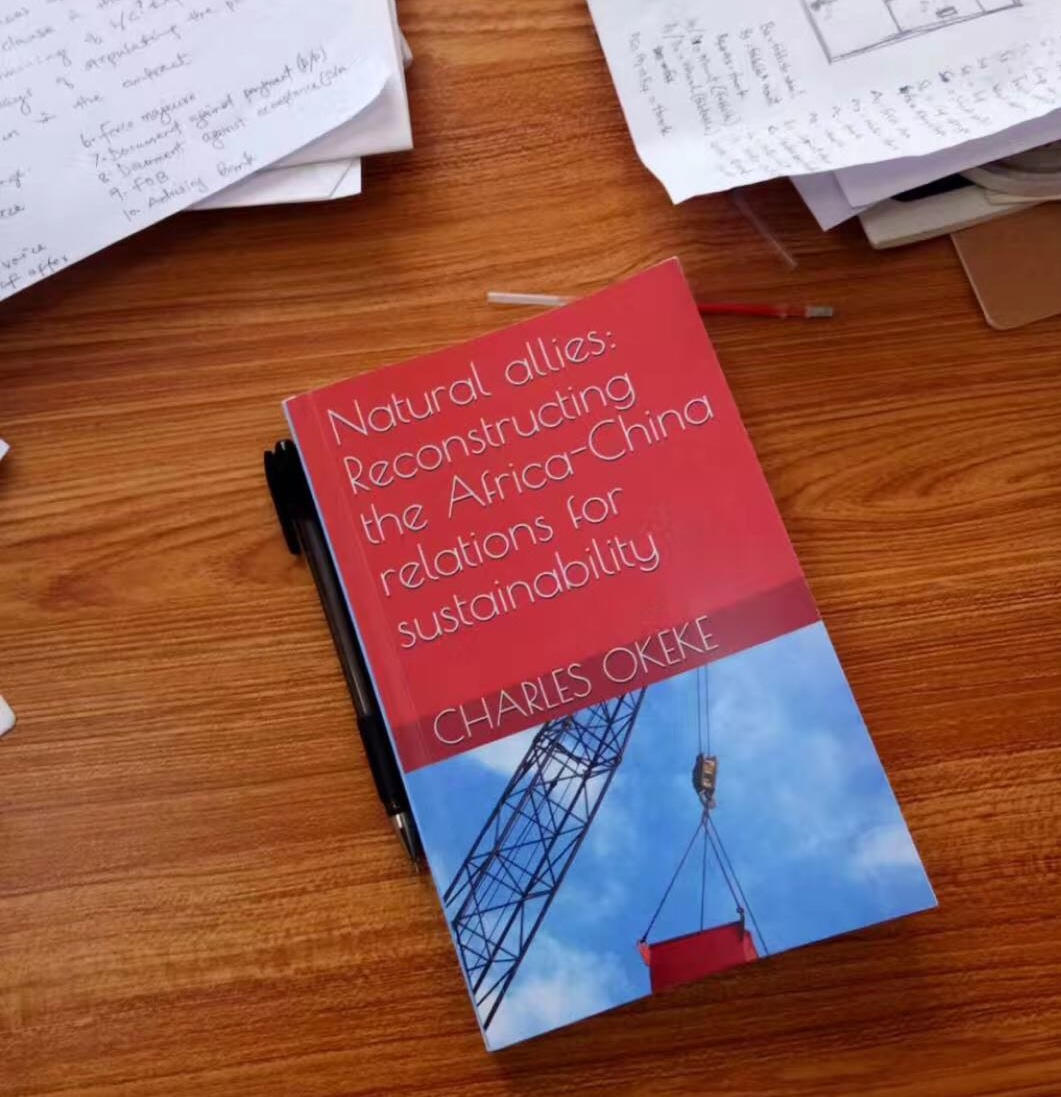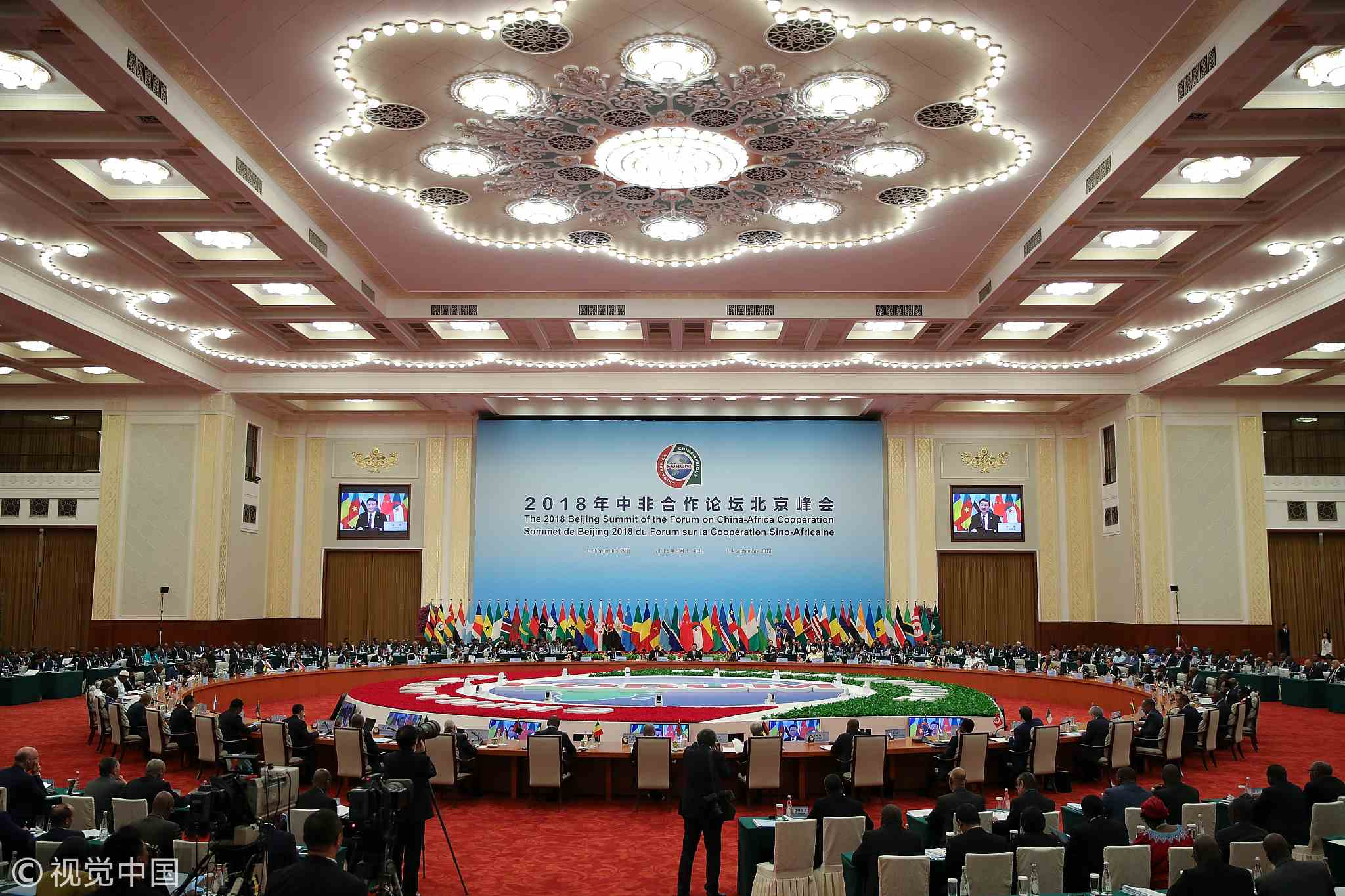

Editor's note: This article is based on an interview with Charles Okeke, the author of the book "Natural allies: Reconstructing the Africa-China relations for sustainability." The article reflects the expert's opinions and not necessarily the views of CGTN.
The fast development of China-Africa ties is happening in tandem with mounting biased criticism from the U.S. and Europe over this special relationship. Washington has long warned African countries against what it calls China's "debt diplomacy" and repeatedly accused Beijing of using "debt to hold states in Africa captive to [its] wishes and demands."
Since China adopted the reform and opening-up policy in 1978, the African continent has been of interest for Chinese investors. Over the past two decades, China's trade with Africa has witnessed a 40-fold increase, with the trade volume reaching up to 140 billion U.S. dollars in 2017.
However, criticism has loomed large over the trade boom. "Debt trap" or "debt diplomacy" has become a common designation for Western media to describe Sino-African relations.
"Why Western countries are coming up with these allegations is because they are scared," said Nigerian scholar Charles Okeke, also the author of "Natural allies: Reconstructing the Africa-China relations for sustainability." Amplifying African voices was one of the reasons that pushed him to write his book.
Okeke believes that Western countries are not fans of the competition that China has brought to Africa. After countries there got their independence, the West continued to exploit the continent. But with China entering the African market, more nations established win-win cooperation with it, making the West feel insecure about their declining influences.

Charles Okeke is the author of "Natural allies: Reconstructing the Africa-China relations for sustainability." /Courtesy of Charles Okeke
The "debt diplomacy" claims are untenable. "Only about 20 percent of African government external debt goes to China, while 35 percent is held by multilateral institutions controlled by the West," said Okeke, adding "The truth is that the total amount of money that the entire African countries owe to China is nothing compared to what we owe to the West."
Africa is only the fourth-biggest recipient of Chinese foreign direct investment (FDI) after Europe, the Americas and Asia.
Take the U.S. for example, its debt to China amounts to 1.12 trillion U.S. dollars while Africa owes China about 83 billion U.S. dollars.
What the Western countries are trying to do is to rile African countries up against China and press ahead with their tricks to colonize Africa, according to Okeke.
The Belt and Road Initiative (BRI), a multi-billion-dollar infrastructure initiative, has been a specific target of the "debt trap" allegations. However, as Okeke emphasized in the first chapter of his book, the BRI is an extension or a continuation of the existing Sino-African relationship.

Chinese President Xi Jinping speaks during the 2018 Beijing Summit of the Forum on China-Africa Cooperation at the Great Hall of the People in Beijing, China, September 4, 2018. /VCG Photo
African is in need of 130-170 billion U.S. dollars in infrastructure building every year, but the lack of funding hampers the continent's development. The BRI helps African countries unlock their potential, and contributes to their infrastructural needs by improving the transportation system across the continent.
China has significantly expanded African railways, building the continent's longest railway connecting Ethiopia and Djibouti.
About 39 African countries and the African Union Commission have so far inked BRI cooperation agreements with Beijing, showing the continent's strong support for the initiative. By the end of 2016, China had built 20 industrial zones in 15 African countries, with investment reaching up to 5.38 billion U.S. dollars.
"For African people including me, the BRI means huge potential, big opportunities and a strong relationship booster," Okeke said.
(If you want to contribute and have specific expertise, please contact us at opinions@cgtn.com.)

Copyright © 2018 CGTN. Beijing ICP prepared NO.16065310-3
Copyright © 2018 CGTN. Beijing ICP prepared NO.16065310-3